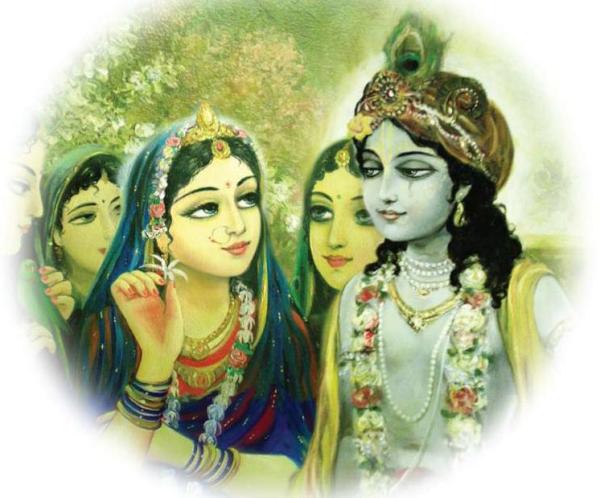By His Divine Grace A. C. Bhaktivedānta Swami Prabhupāda
TEXT 10
- तेषां सततयुक्तानां भजतां प्रीतिपूर्वकम् ।
- ददामि बुद्धियोगं तं येन मामुपयान्ति ते ॥१०॥
- teṣāṁ satata-yuktānāṁ bhajatāṁ prīti-pūrvakam
- dadāmi buddhi-yogaṁ taṁ yena mām upayānti te
TRANSLATION
To those who are constantly devoted to serving Me with love, I give the understanding by which they can come to Me.
We are born ignorant. Human life is the chance to dissipate this ignorance, and that requires tapasya, not to live like cats and dogs – frivolous life. That will not help us. Tapaḥ. Tapo divyaṁ yena putrakā śuddhyet sattva [SB 5.5.1]. That human life is meant for tapasya, austerities, not to live extravagant life, irresponsible life like cats and dogs. No. That is not human life. That is animal life. So therefore śāstra says that you undergo austerities. Then your existence will be purified, and then you will get pure knowledge, and you will understand what is your position, why you are in this material world, why you are suffering the threefold miseries, why you are obliged to die, why you are obliged to become old man. So many things you have to learn. But if we learn like cats and dogs, then we spoil our life.
Brahmā, the first created being, had to undergo tapasya (austerity) to get information from the Supreme. The Supreme Lord is within you. He’s there. But He will advise when you are fixed up by tapasya, determined with vow. Then He will talk to you. He’s ready to talk, but you require to acquire the qualification to hear Him. And what is that qualification? This Krishna consciousness, devotional service.
As it is said in the Bhagavad-gītā, teṣāṁ satata-yuktānāṁ bhajatāṁ prīti-pūrvakam [Bg. 10.10]. Satata means always, twenty-four hours, not that five minutes I meditate and rest of the time I live like cats and dogs. No. This kind of meditation will not help you. Krishna says “satata”. Satata means “twenty-four hours.” You have to mold your life in such a way that twenty-four hours you’ll think of Krishna. This is Krishna consciousness. If you think, “Now I have chanted my sixteen rounds. Now I’ve finished my business. Now I can do whatever nonsense I like.” No. Krishna says “No. Satata.” Therefore we have to plan our life in such a way that we haven’t got any other engagement than service of Krishna. This is required. Continue reading







